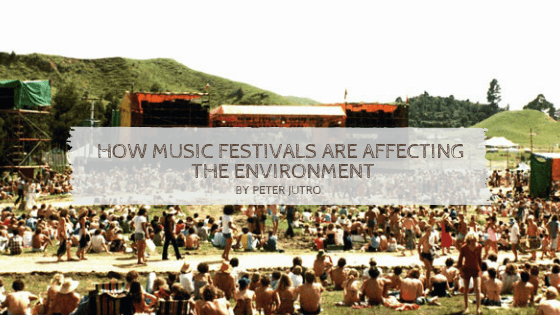Listening to your favorite artists perform at a music fest is a hands-down fantastic time. But when thousands of people camp in the same place for days, the byproduct is often a bit less pleasant than the experience itself. With large numbers of festival concertgoers come mounds of trash. How that trash is disposed of can make the difference between a sustainable event and a damaged ecosystem. When it comes to cleaning up, festivals employ a range of strategies to cut their environmental impact, and ensure their space stays pristine.
Every year, Hangout Fest brings tens of thousands to the shores of Alabama for three days of great music. The challenge in cleaning up a beachfront, says Sean O’Connell, Hangout Fest Director, is that trash can sink under the sand and accumulate unseen. To deal with buried refuse, staffers comb the area in a large-scale sweep every night. They use deep-cleaning machinery to leave the sand “cleaner than it was before we set foot on it,” according to O’Connell. In addition, the Hangout Fest hires experts in sea turtle care to ensure that any eggs laid are well-taken care of. They also plant palm trees as scenery for the festival, and afterwards, these are gifted to businesses and state parks.
Tom Russell, co-founder of concert promotion company Founders Entertainment, believes that running a successful music festival means keeping in mind the principles of environmental stewardship. Founders, which organizes New York City festivals like Governor’s Ball and The Meadows, requires food stands to offer compostable plates and utensils. Recycling bins are also placed next to every trash receptacle, and the festivals encourage attendees to recycle, via social media, billboards and other messaging channels. To discourage the use of plastic water bottles, Founders festivals have installed water refill stations throughout their venues.
For many festivals, another upkeep strategy is partnering with environmentally-focused organizations. The Northside Festival in Brooklyn works alongside the Open Space Alliance, a conservancy group that provides maintenance across the parks where the festivals are held. The Alliance also looks after North Brooklyn’s outdoor spaces year round, so the Northside Festival donates the proceeds of outdoor shows to the group in exchange for cleanup assistance.
While festival management plays a major role in keeping grounds clean, audiences must also accept responsibility for their actions. Practicing green habits is key, such as those encouraged by Burning Man’s ”Leave No Trace” philosophy. The 50,000 who camp out for a week in Black Rock City have woven sustainability into their culture, taking care to bring no more supplies than what they can properly dispose of. There are no trash or recycling bins at Burning Man; instead, visitors must take their trash with them when they leave. The festival’s website offers information on composting, trash minimization, line sweeps, “green” burns and other eco-friendly tactics that audiences can take to eliminate what Burning Man calls “matter out of place, or MOOP.”

